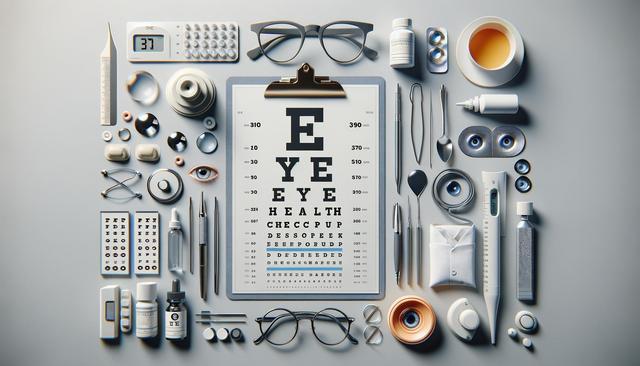The Importance of Routine Eye Exams
Many people underestimate the significance of routine eye exams, especially if they are not experiencing any noticeable vision problems. However, eye health encompasses more than just seeing clearly. An eye doctor can detect signs of conditions that may not yet be causing symptoms but could lead to serious complications if left untreated. Diseases like glaucoma and macular degeneration often develop slowly and without pain, making early detection through regular checkups crucial. Moreover, some systemic health issues such as diabetes and high blood pressure can also be detected during an eye exam, adding another layer of importance to these visits.
Eye exams are not only for those with glasses or contact lenses. Even individuals with perfect vision should have periodic evaluations to ensure their eyes remain healthy. By establishing a baseline and monitoring changes over time, eye care professionals can provide timely interventions and preserve long-term visual health.
What Happens During an Eye Health Checkup
A comprehensive eye exam includes a variety of tests designed to evaluate different aspects of vision and eye health. These tests go beyond simply checking how well you can see letters on a chart. A typical visit may include:
- Visual acuity test to measure clarity of vision
- Refraction assessment to determine lens prescription
- Slit-lamp examination to evaluate the structures of the eye
- Tonometry to measure intraocular pressure, a key indicator of glaucoma
- Retinal examination to assess the health of the retina and optic nerve
These tests allow the optometrist or ophthalmologist to detect early signs of issues such as cataracts, retinal detachment, or eye infections. Depending on your age, risk factors, and symptoms, the eye doctor may recommend additional tests or more frequent checkups.
How Often Should You Get Your Eyes Checked?
The frequency of eye exams depends on several factors, including age, overall health, and family history of eye conditions. General guidelines suggest:
- Children should have their first eye exam at six months, another at age three, and again before starting school
- Adults aged 18 to 60 should have a comprehensive eye exam every two years
- Adults over 60 should have annual eye exams
- Anyone with existing conditions such as diabetes or a family history of glaucoma may need more frequent monitoring
Following these recommendations can lead to the early detection of problems and more effective treatment. Eye doctors can tailor the schedule based on individual needs, so it’s worth discussing your specific risk factors during your visit.
Benefits Beyond Vision Correction
While many associate eye exams primarily with updating their glasses or contact lens prescription, the benefits extend much further. Regular eye checkups can contribute significantly to overall well-being. For example:
- Detecting early signs of chronic diseases like hypertension and diabetes
- Preventing complications from undiagnosed eye conditions
- Reducing the risk of falls or accidents related to poor vision
- Improving productivity and quality of life through better visual comfort
Additionally, for those who work long hours in front of screens or spend significant time outdoors, routine eye care can help mitigate the effects of digital eye strain or UV-related damage. Advice from an eye care professional can lead to better habits and protective measures that support lifelong eye health.
Preparing for Your Eye Appointment
To make the most of your eye health checkup, a bit of preparation can go a long way. Start by gathering your medical history, including any medications you’re taking, known allergies, and previous eye issues. This information helps the eye doctor understand your overall health context. If you wear glasses or contact lenses, bring them with you to the appointment.
It’s also helpful to write down any symptoms you’ve noticed, such as:
- Blurred or double vision
- Frequent headaches
- Eye strain or fatigue
- Flashes of light or floaters
Sharing this information ensures a more accurate diagnosis and tailored recommendations. Don’t hesitate to ask questions about your results or next steps. Understanding your eye health empowers you to take proactive steps toward preserving your vision.
Conclusion: Making Eye Health a Priority
Taking care of your eyes should be an essential part of your overall health routine. Whether you’re experiencing symptoms or not, regular eye checkups are a key preventive measure that can safeguard your vision and detect broader health concerns. By staying informed and visiting an eye care professional on a recommended schedule, you can enjoy clear vision and peace of mind for years to come. Prioritizing eye health today helps ensure a brighter, clearer future.




Leave a Reply